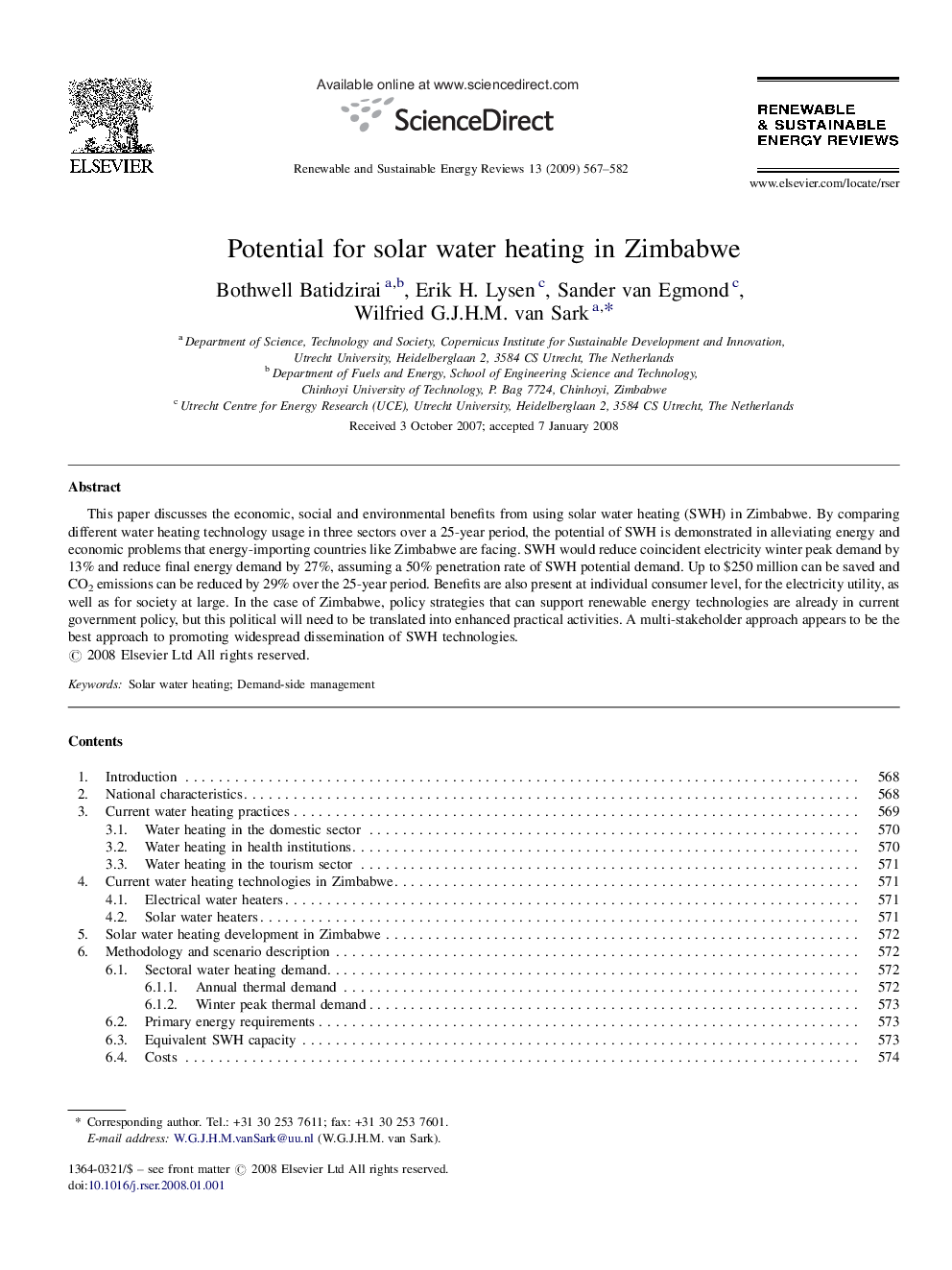| Article ID | Journal | Published Year | Pages | File Type |
|---|---|---|---|---|
| 1752190 | Renewable and Sustainable Energy Reviews | 2009 | 16 Pages |
This paper discusses the economic, social and environmental benefits from using solar water heating (SWH) in Zimbabwe. By comparing different water heating technology usage in three sectors over a 25-year period, the potential of SWH is demonstrated in alleviating energy and economic problems that energy-importing countries like Zimbabwe are facing. SWH would reduce coincident electricity winter peak demand by 13% and reduce final energy demand by 27%, assuming a 50% penetration rate of SWH potential demand. Up to $250 million can be saved and CO2 emissions can be reduced by 29% over the 25-year period. Benefits are also present at individual consumer level, for the electricity utility, as well as for society at large. In the case of Zimbabwe, policy strategies that can support renewable energy technologies are already in current government policy, but this political will need to be translated into enhanced practical activities. A multi-stakeholder approach appears to be the best approach to promoting widespread dissemination of SWH technologies.
